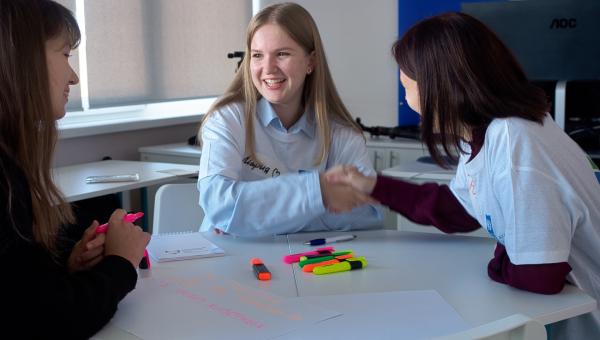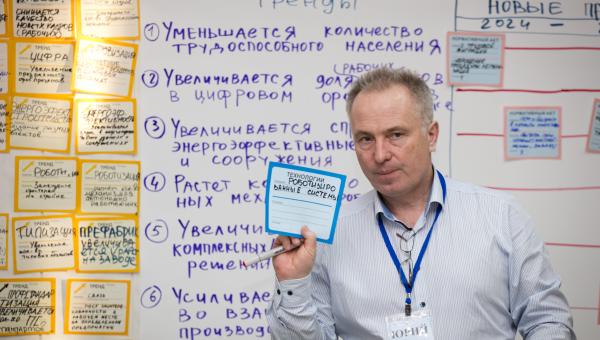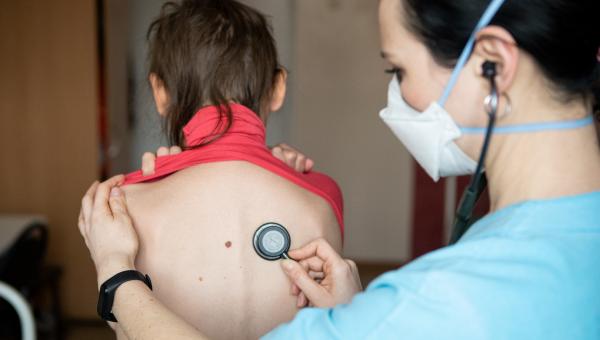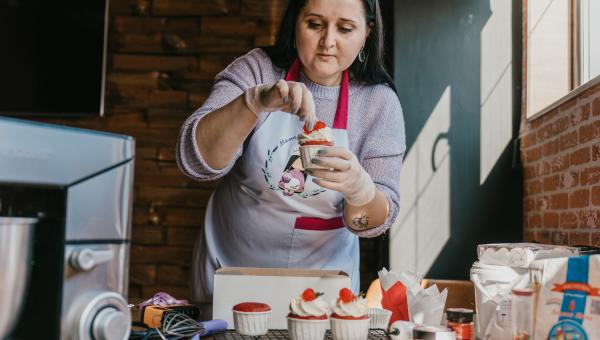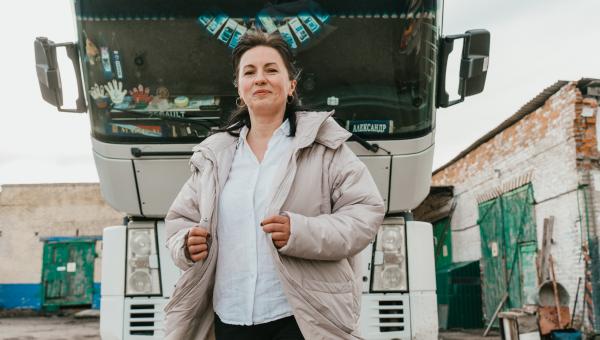Story 3
Antiretroviral Therapy: Chance for a New Life with HIV
January 29, 2024

Darya, 36 years old
I am one of those people who are called ‘done’. I didn't know life without using drugs, because from the age of 14 I was in a good ‘system’ (slang: system - constant drug use). As kids in the 90s we were often unattended. My mom worked 3 shifts at a factory. Everyone in our yard was using. Drugs were always available, and there were so many of them that I was almost out of touch with reality. I was aware that I was an addict, and even proud of it. I could walk around with my arms open showing off all that ‘beauty’.
I started taking drugs with people who were among the first in Minsk to be diagnosed with HIV. At that time there was no hope and no treatment. In my circle there was even some kind of culture of sharing the diagnosis when using together. That is, when a new person introduced themselves, they’d first say, ‘I am HIV-positive’ and only then ‘my name is Vasya’. There was a lot of talk about it in my life, and it lowered my fear of HIV. I saw that people had lived for a long time without any medical help, so I treated my diagnosis with a kind of carefree attitude. I thought it wouldn’t kill me yet, I had time. There was no panic, and I didn’t stigmatize myself.
I know when I got infected. I was really sick, I even had cramps. I took new synthetic drugs that made me feel like my heart stopped and I couldn't breathe. I needed another kind of drugs to get back to normal. The guys I went to for a dose offered me their syringe. I knew they had HIV but at that moment, I didn’t care. The most important thing was to feel better.
When I took the test, I knew it would most likely be positive. It was what it was. I never had any fear of HIV. It took a long time before I decided to seek help.
There were horrible side effects of substance abuse. It was so bad they wanted to amputate my leg. At the hospital I confessed that my rapid test once came positive, and they took me to Kropotkina (i.e. City Clinical Infectious Diseases Hospital in Minsk). There I eventually recovered. I am very grateful to the infectious disease specialists. They created such a nice atmosphere that I didn't want to leave the HIV Unit. The doctors and nurses there were wonderful. It was not even the lack of stigma but the fact that they were simply pleasant and caring people, despite of working with rather difficult patients, mostly addicts.
It's important not to shame people living with HIV or tell them: "You are weak, you've lost, you are guilty, pull yourself together, get a job, start a family, have children". Addiction is a disease so one needs adequate treatment and professional help, not witch-doctors. It's very difficult to find a supportive environment where people understand and accept you. And often this is already enough to start changes.
I was in rehab for a year. When I'm sober, I behave appropriately. I started to deal with my problems and got a job as an outreach worker (i.e. a person that works with hard to reach communities) in the Belarusian Association of UNESCO Clubs. I took part in training, learned a lot but still didn't take antiretroviral drugs (ART). I was regularly tested, and my immune system was fine. Back then antiretroviral therapy was prescribed only when it deteriorated to a certain level. I wasn't really worried. I decided to get treatment only when my condition worsened.
I started ART only when I got into relationship with a healthy man and felt responsible for his health. My opinion is as follows. One can kill themselves as long as they want, it's their private business. A person has the right to both life and death. The kind of death they choose. But you can't endanger others. I told my boyfriend I was HIV-positive at the very beginning, before we got intimate. I rehearsed telling him about my HIV-status and thought it would be a nightmare. But there was no drama. ART guaranteed to lower my viral load to an undetectable level so I went to get the pills.
I've been in therapy for about 7 years now. I pop a pill every day like a vitamin and move on with my life. When I started ART, I had 1200 CD4 cells and an undetectable viral load, even though I was killing myself as much as I could.
The blood of a healthy person contains 800-1200 CD4 cells that are responsible for the immune system’s response to various infections. HVI-positive people with a favorable course of disease have a cell count of about 500 CD4-lymphocytes per 1 ml of blood. A decrease to 200 cells and below is life-threatening, as opportunistic infections develop in the body.
I needed a part-time job to get a foot in the door somewhere, but I felt like I’ve completely wasted all the chances. Deep down I knew I had to start from something I understood well. And I knew a lot about drug abuse and HIV. I decided that instead of suffering I had to transform my experience into something that would help other people. Not from a "top-down" position but as a peer who gets it and works side by side a person in recovery. I love my job, I feel very comfortable here. I don't have to pretend that I'm normal. People who come to me don't need 'normal'. That's why they don't go to medical centers and don't trust people in white scrubs.
Perhaps the first thing that someone sees in me is my diagnosis but then the rest depends on how I build my relationships. One can strike an attitude and get offended at the whole world or they can move on. I need to have a little patience and remember that people I interact with also have the right to the first impression. If I want to be welcomed, I should take steps towards them as well.
It is very convenient to blame everything on addiction. It would be much easier to believe that all my problems were caused by HIV. Then I wouldn't need to make any efforts, work on myself and my relationship with others because the whole world doesn't like me anyways.

 Locations
Locations